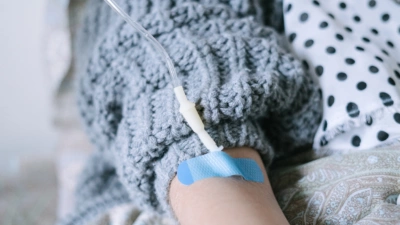Supportive care aims to improve the quality of life of people who have a blood cancer or blood condition. The goal of supportive care is to prevent or treat any symptoms caused by the disease itself or side effects of treatment.
Some examples of supportive care are:
- Blood transfusions: Red blood cell or platelet transfusions can be given through an IV drip to help increase your blood cell counts and reduce symptoms associated with having low red blood cells or platelets.
- Antiemetic drugs: Used to prevent or control any nausea or vomiting caused by the treatment or disease.
- Pain relief drugs: There are a variety of different pain relief drugs that work in different ways to reduce pain.
- Antibiotic, antimicrobial and antiviral treatments: You may be at higher risk of developing infections. If you get an infection, you may be given antibiotics, antivirals or other antimicrobials to help treat it. You may also be given these treatments to prevent an infection – this is called prophylaxis.
- Vaccines: Vaccines help prevent infections. Some treatments can ‘reset’ your immune system so you may need to have some vaccines you have already had again. Your health care team will talk to you about which vaccines they recommend for you, and when you should have them.
- Support from a dietitian, psychologist and/or chaplain.
You don’t have to be on treatment to receive supportive care. Anyone with a blood cancer or blood condition should be receiving some form of supportive care.




